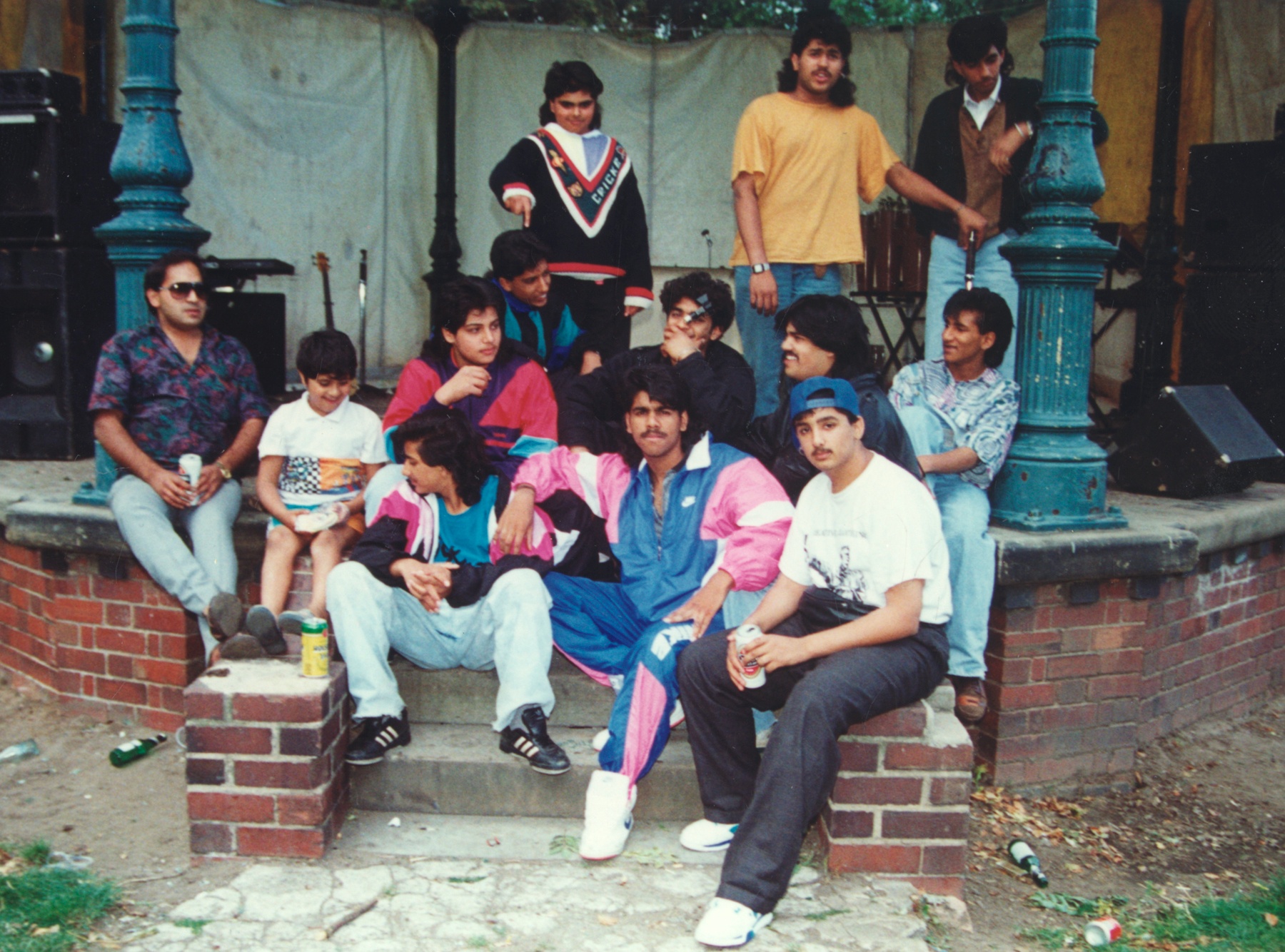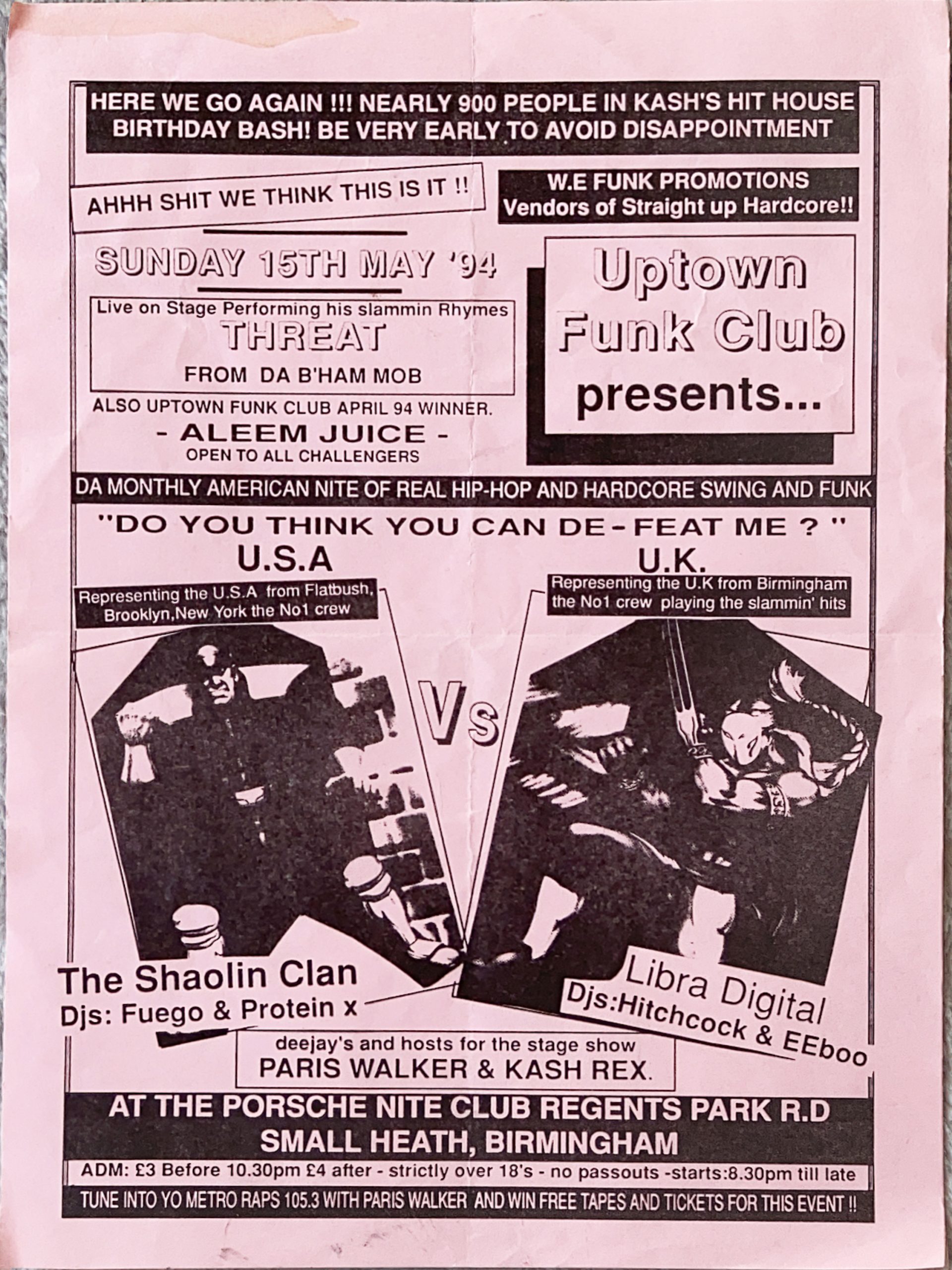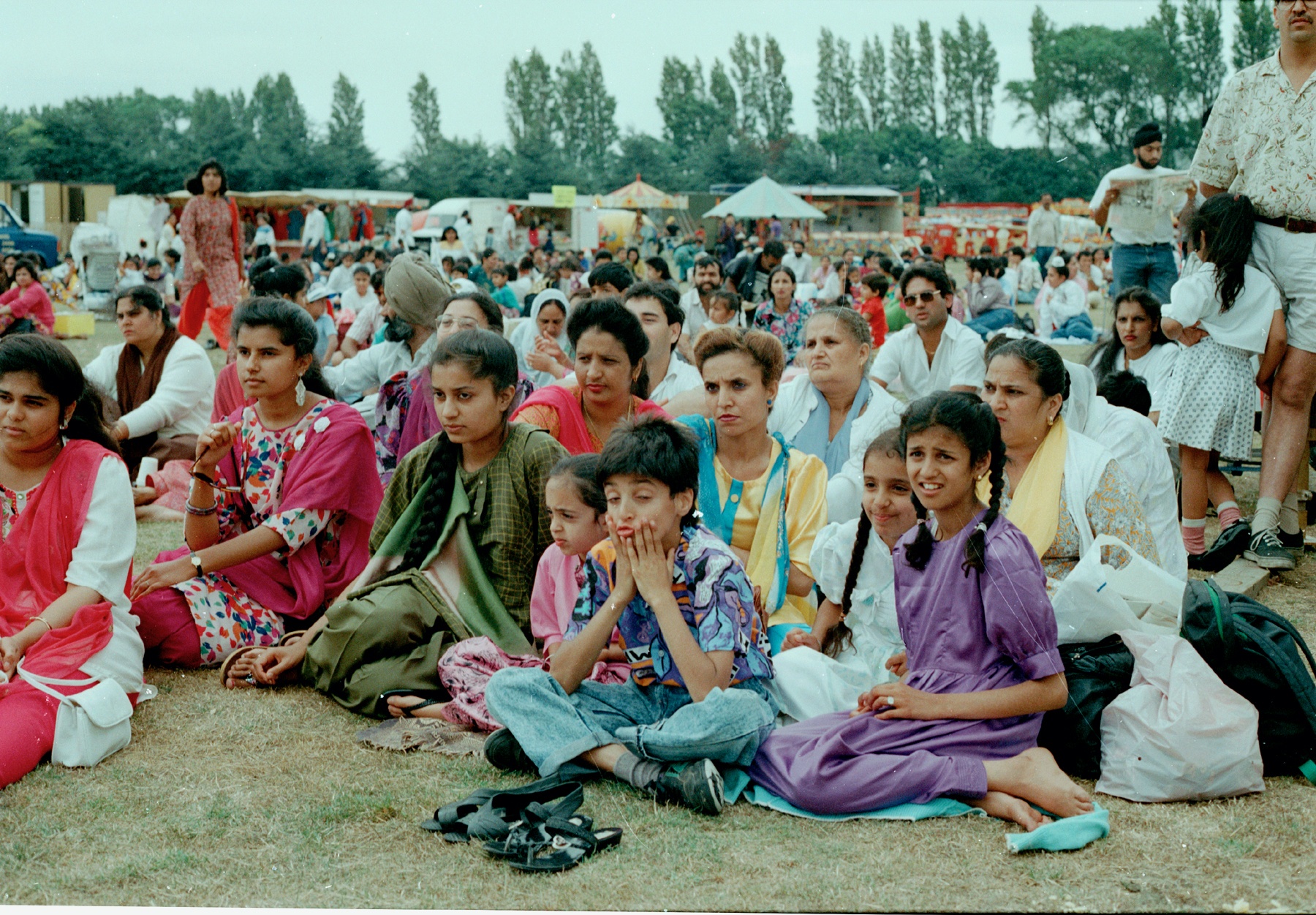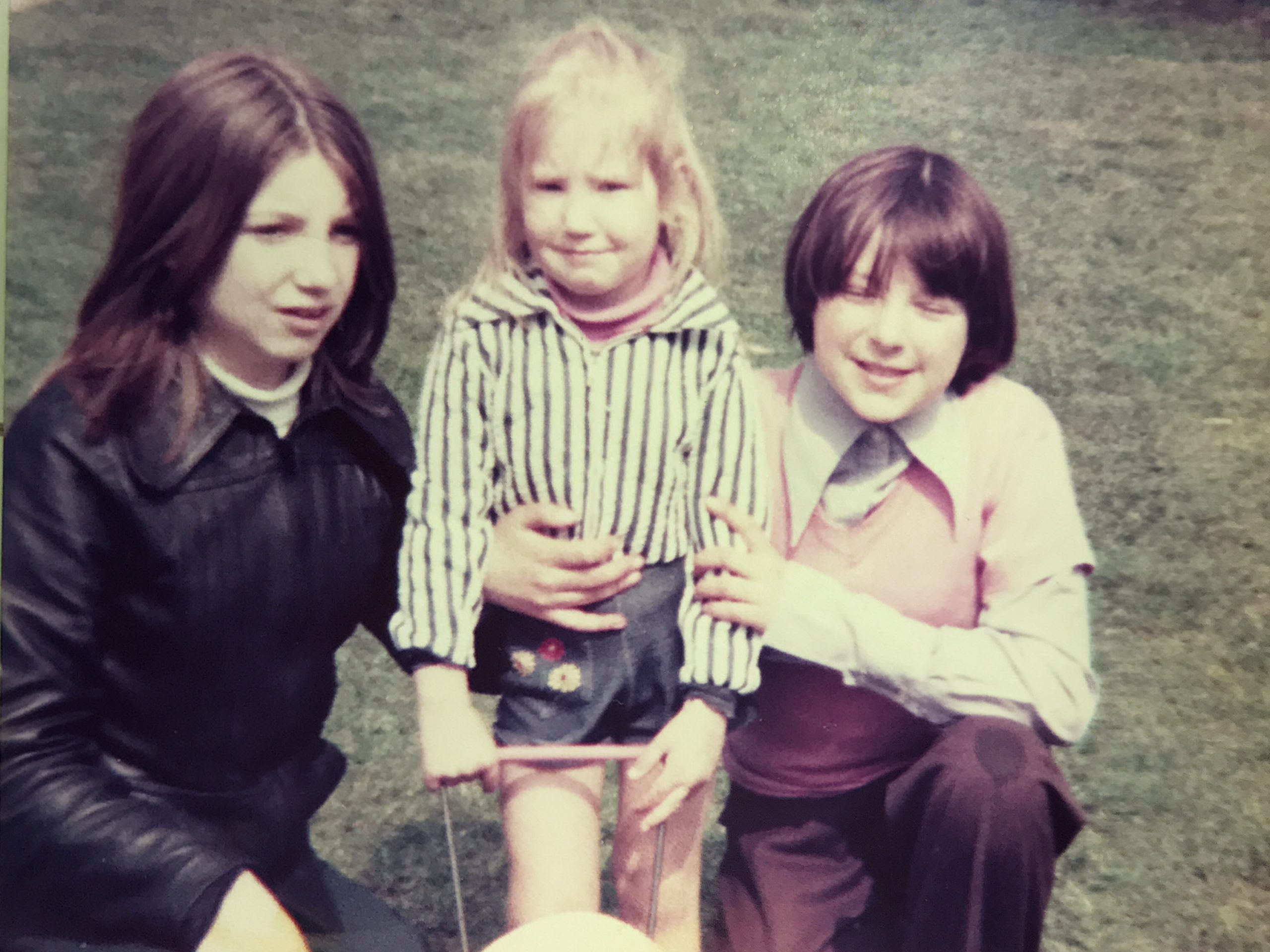
birmingham stories
Collected by Jez Collins

"My approach as an outreach champion was to find a diverse mix of people from my home city of Birmingham to interview about their history, heritage and culture of growing up in Birmingham.
I wanted the diversity of the city to be represented in the interviews so I actively approached women, people of colour, people who identified as LGBTQ and from working class backgrounds. Whilst we were guided by the project’s objective around Growing Up in Britain, I attempted as much as possible to let people talk about what mattered to them and so I took a semi-structured approached when interviewing. To aid the interviewee I asked them to select 10-12 images that were important to them or that they felt represented them as youth and when then adopted a loose chronological order to the images. This enabled the conversation to flow.
Finally, all interviews were conducted during the Covid Pandemic and in Lockdown. This created some challenges in so much as I believe it is more difficult to gain the trust or build rapport with interviewees via video but I hopefully these were overcome.
I hope the interviews provide a small insight into some amazing people from my hometown!"
Jez Collins is the founder and director of the Birmingham Music Archive C.I.C. The BMA captures, documents, celebrates and amplifies the musical and creative cultures of Birmingham and its communities through a range of diverse and engaging projects.
@jezc + @brummusicpics
Jez's research project was part of Setting the Record Straight, supported by the National Lottery Heritage Fund.
listen to the stories
Bridget talks about growing up in an Irish family in Birmingham, playing with her friends in the area and life her with her parents, brothers and sister. She talks about music being really important in her life, her first experience being a recording of Thank Your Lucky Stars. After that she went every week, as well as going to the Odeon and the ice rink on Mondays, seeing bands such as The Beatles, The Stones, The Who and Cliff Richard. She talks about being carefree as a teenager, going out to clubs and having to sneak into the house, and just having the time of her life. Bridget discusses her first boyfriend and how much her parents hated him. She also talks about her sister Anne and their close bond, and her life with cerebral palsy. She discusses leaving school and starting working, and how easy it was to get work. Bridget discusses how Birmingham and more generally things have changed for young people since she was young.
Dave was born and raised in King’s Norton and talks about life growing up there in an Irish family. He discusses going to the cinema, vividly remembering seeing Dance Craze and Rocky, and his passion for music. He discusses moving from a flat to a house when he was 9, and that really changing things. Dave talks about primary school and still being friends with his friends from that day. He talks about his relationship with his brother Gary, who was four years older, and getting him into Punk and being generally a big influence on him. He goes on to discuss how Ska and Two Tone was massive for him, and going to his first ever gig to see Madness, aged 13. Talking about gigs he’s been to in his lifetime and travelling across the country, his favourite to this day is May 1985, Birmingham Powerhouse, band called Spear of Destiny. He talks about Northern Soul being one of his first loves, and that got Dave into DJing which he has continued ever since. He talks about the links between buying records, DJing and the magic of seeing bands live. Dave ends by talking about Zombie Club, a club night he’s run with his best mate for several decades, inspired by rare 80s music.
Gursharanapal, also known as Boy Chana, grew up in the diverse St Lozells neighbourhood of Birmingham. He talks about being a second generation South Asian, with his parents moving to the UK from Uganda in 1972. He discusses the positive influence of growing up in an area where those of asian, black and white working class communities could share their experiences and interests throughout the 70s and 80s. He talks about being heavily involved in Birmingham’s music scene, fusing a love for Bhangra music and his Asian heritage with the more mainstream music. Working as a pirate radio DJ for the Asian community, reporting and reviewing on new music releases and hosting late 90s all-dayer events, all whilst passionately encouraging and promoting Asian music. Boy Chana ends by talking about how to this day he is still involved with the music scene, DJing at events and supporting local artists.
*Drugs discussed* Ian was born in Small Heath and talks about his childhood, playing outside and jumping out of bomb ruins. Ian talks about getting into football from 8 years old, being obsessed and playing for three teams, discussing more generally his love of sport. He talks about his parents splitting up and his mum remarrying - moving to a working class area of Solihull. Ian talks about his first experiences of drinking, going for a balti and table naan on a Friday night. His first musical love was grunge, but getting into House when he was fourteen after listening to the Renaissance Mix. Ian talks about going from sports to hanging out with mates and girls, listening to House and smoking weed. They go on to discuss more generally weed culture and the campaign against it. He talks more generally about music, being more of a listener rather than a dancer. After House he got into The Beatles and the more 60s psych guitar, going to Moneypennys. Ian talks about not being able to do his GCSEs and being a bit lost for a while not knowing what to do, eventually going to college to do Media and TV production. At college he discovered photography and talks about his first job, which was quite questionable. He goes on to talk a bit more about later in life, friends getting married, focusing on his work as a photographer.

Jasi is Birmingham born and bred, from Sikh heritage. She talks about her dad first moving to the UK and his experiences of work, and the family later joining him and settling in Birmingham. Jasi discusses family life in a big family and living in a multicultural area and the kids she would hang out with on their street. She talks about her older siblings paving the way for her and embracing Western culture. Jasi discusses some of the racism they faced and more generally Asians in the community faced. Jasi goes on to discuss getting into Punk and Indie music with her siblings and best friend Jane, talking about the clubs and record shops she’d go to. She talks about the house parties they’d have at Jane’s house, where boys could come as well. Jasi talks about her first job in a pizzeria and using her money to go shopping for clothes. Sh talks more generally about the antics she’d get up to around town with her friends and her boyfriend Neil.
Juice is an MC, musician and artist from Birmingham, whose parents migrated from St Kits and Jamaica. Juice discusses his experiences growing up moving around Birmingham and the impact of community on his identity. He alludes to the racist abuse and prejudice he and others suffered from a young age noting that non-white communities supported each other, forming ‘families’ and looking after each other. He notes that this extended to Irish children in his area, who also suffered from prejudice from white, English communities and were often the only white people who would be kind to people of colour. He emphasises the importance of the informal education he received from elders in his community, learning about black history and politics which made him distance himself from the formal curriculum taught in schools, and allowed him to learn more about his heritage and the structures around him. He discusses his musical influences including but not limited to Reggae and Hip Hop, using Sound Systems to produce music and the importance of pirate radio. He notes that pirate radio was the backbone of the black community in Birmingham and a way to discover new music and find out about what happened in their area. Juice then talks about his early experience as an MC, meeting with record labels, making mixtapes, and later his involvement in the beginnings of Big Dada after he moved to London. He goes on to talk about touring with his crew around the UK, Europe and the US in the early 2000s. He talks about the popularity of his crew, especially his friend Toastie, and the different experiences playing at big gigs internationally.
Lawrence grew up in Solihull, but as soon as he was old enough spent a lot of time in Birmingham. He talks about the differences between the two, Solihull being very proper and conservative, and the bus journey into Birmingham and his memories along that route. His first night out was at the Mermaid to see bands and it being a real coming of age moment. He talks about Barrel Organ further down the route in Digbeth, where it was more glamorous and first experimenting with make- up, hair and borrowing his sister’s clothes; it being a real safe and welcoming space for the alternative crowds At the end of the bus would be the centre of Birmingham and Oasis, where he’d love to have been able to shop. He talks about making his own clothes. Lawrence talks about getting a Saturday job at a hair salon, which was an environment where being gay wasn’t an issue. He talks more generally about realising he was gay and eventually coming out to his parents, as well as the Birmingham gay scene. Lawrence talks about the bands he listened to, from The Cure to Napalm Death, Boy George and hair Metal. He talks about being involved in the Goth and New Romantic scene as he got older. He talks about the fact that his mum made most of his clothes and the element of dressing up. He ends by talking about getting older and shifting some of his priorities away from going out and clubbing, but the music still being so important.
Mohammed is a graffiti artist from Birmingham, he talks about growing up in Sparkbrook and moving to King’s Heath when he was eight in a Bangladeshi household. He talks about the sense of community and social cohesion in a diverse community in Sparkbrook, playing out on the streets with friends. Mohammed discusses family life, his dad working in the factory and his mum running a fish and chip shop. Mohammed talks about first getting into Hip Hop and Graffiti in the 80s, through his older brother. He read his Graffiti books and started drawing and sketching, always having had an interest in art. Mohammed talks about his wider family life; aunts, uncles, cousins; and the Bangladeshi community in the UK, working in industry and many settling in Birmingham. Mohammed discusses the 11+ and getting into Grammar school, which was a mostly white, middle class school. He was exposed to Detroit techno and ambient whilst he was there, changing his style and as he said becoming more of a white kid. Mohammed talks about doing his first attempt at graffiti around the age of twelve, and continuing on that journey. His tag at this time was Eyzo and he was doing it to simply get his name up. Graffiti is one of the only art forms that was made by youth for youth, and really ‘your art form’. He talks more generally about the Graffiti scene in the eighties and its relation to Asian, Black and White youth culture at the time. He also discusses how helping out at his family’s restaurant and going to a grammar school, he was able to get an insight into a different culture and allowed him to hold himself in White spaces. Mohammed goes on to talk about going to gigs and music, and being able to experience that more properly after going to university in Leicester. Whilst at university he also rediscovered religion, after going to the mosque as a child, and it giving him a real sense of direction. He talks about his Graffiti being a representation of his faith and culture, and putting his journey to the world. Mohammed discusses exploring dual identity and the Muslim title vs the British title, and putting out a positive narrative. Mohammed keeps going back to his parent’s restaurant and that being his anchoring point. He ends about his father’s passing and the journey that it took him on - resulting in the Knights of the Raj exhibition on Bangladeshi-owned restaurants.

*Discussion of drugs* Natalie describes her childhood growing up in Great Barr, Birmingham. She talks about being the youngest in her family and recalls a solitary upbringing because of the age gap between her and her brothers, due to her mother suffering two miscarriages and the death of a child. She describes her parents being a lot stricter with her as a result compared to her brothers, but also notes that parents tend to be a lot stricter when raising girls. At 13 she began drinking in the park with her friends and later became a raver, going out in Birmingham every weekend and staying out all night at iconic venues taking drugs and dancing. She emphasises that her area was extremely white and working-class, noting that there were only two people of colour along her road and she led a colourblind childhood, not realising her peers were experiencing racism at school although she was aware people in her area were harbouring racist views. She ends by saying that she had a nice childhood and has good memories of her youth and has stayed in Birmingham her whole life as a result.
Nathan is from Bradford but is a third year student of photography at Birmingham City University. He works with socially engaged documentary practice and about engaging with communities in his work. He discusses a collection of photographs by his half-sister’s grandma Joyce, which he started digitising as part of his practice. The archive documents Joyce and her husband Trevor (who took most of the photographs) and their son Keith. He discusses the photographs, and more generally family life in West Yorkshire in the sixties and seventies.
Nitesh is the creator of jungletechno.co.uk and is an avid raver. Throughout this interview he discusses the rave scene in Birmingham and the impact it has had on him since he was young. He first got into rave culture in the early 1990s at 11 years old when he heard The Prodigy for the first time but thought that rave no longer existed, until his friends started listening to tape packs and attending raves themselves. He attended his first rave on his 19th birthday when he went to Helter Skelter Decadance; shortly afterwards he went to Flashback at The Que Club and never missed a Flashback event after that. Nitesh declares that The Que Club was the centre of dance and rave culture in Birmingham, and talks about rave culture being very inclusive. He stresses that the rave scene hasn’t been the same since, and that the Flashback Resident Artists used to educate attendees about different types of music through their sets as they played a range of genres. These sets were recorded and sold as tape packs which captured the atmosphere of each rave. He notes that he picked what raves to attend wisely as he also worked part-time in Jessops and needed to balance his work and social life, although his job allowed him to print and produce photographs for his website at a cheaper rate. Nitesh says that his website is now an archive of the Birmingham rave scene with an array of images and reviews for people to look at. He also talks about the social aspect of raves, noting the importance of queuing for events and making lifelong friends with attendees, MC’s and DJ’s.
Sean begins by talking about growing up in a home for ex-service men in Billesley, Birmingham until he was six-years-old when he moved to Dublin, Ireland with his family, where he stayed for five years before moving back to Birmingham. He discusses the games he used to play and his time at school, which he stresses was a horrible experience for several reasons. He notes that Birmingham was very diverse, but Dublin was extremely white in comparison. He talks about his interest in Ska music and Mod culture despite dressing like a Rocker, saying that he was fickle with fashion and wore what was cheapest. He mentions signing on being a rite of passage and talks through the various jobs he had as a teenager whilst saving up for various international trips. His family never went abroad on holidays, but Sean describes his trips with his friends interrailing across Europe, working in America and Central America, living in a kibbutz in Israel, and exploring Nepal and India, where he met his wife. He discusses his socialist values and talks about 1980s Thatcherism in terms of his experience as a poor teenager where everyone he knew was receiving benefits, workers were on strike, and stop and search was prominent. Despite all this, he states that he has fond memories of his youth going to gigs, house parties and travelling, but is firm that his time at school was the worst time of his life.
